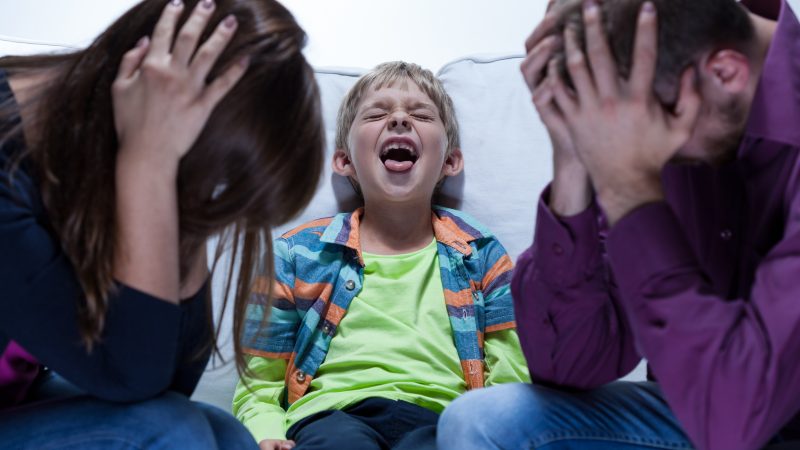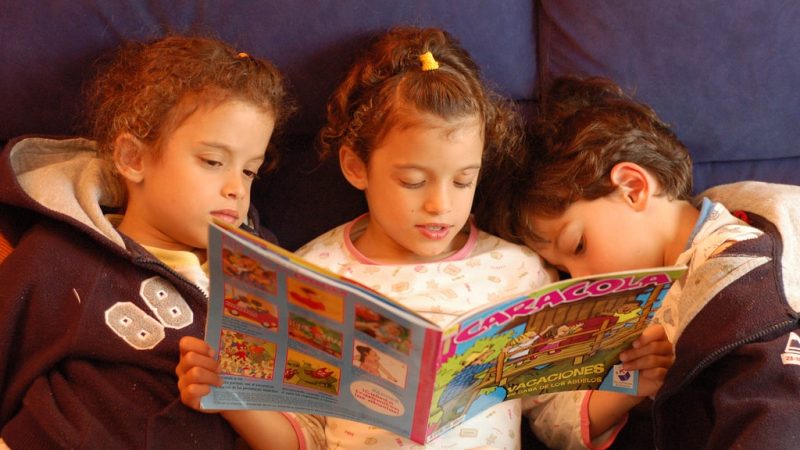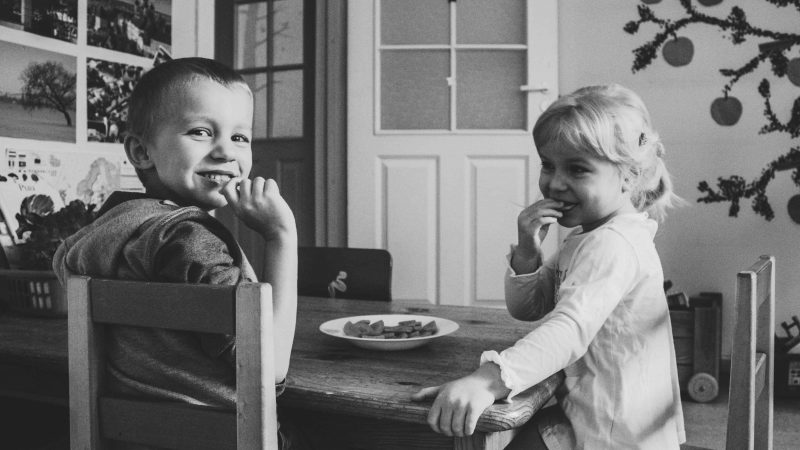
What is reasonable behaviour – Q&A with Dr Bonamy Oliver
This week Dr Bonamy Oliver of the University of Sussex joined us for a fascinating chat about behaviour research.
Bonny is a developmental psychologist interested in family relationships and children’s behaviour. Her research focuses on all sorts of relationships in the family including siblings, and how parents work together (or not!) as a team, but commonly she focuses on parent-child relationships and parenting.
Q: What shouldn’t we be doing as parents? Are there any popular parental actions/approaches that research tells us just don’t work to support good behaviour?
What sort of experiments have been done to show this?
Bonny: Research shows that;
- reward (and I don’t mean tangible reward, I mean that young kids are pretty keen on pleasing us) works way better than punishment;
- boundaries are important (see other post);
- consistency helps;
- and particularly sensitivity to the specific child.
Child temperaments are important too, some children seem to respond in more extreme ways to both positive and negative environments, so they flourish with the former but are more vulnerable to the latter. If you’re interested, there is work on differential susceptibility – so-called dandelions vs orchids (no, I didn’t make that up!).
PSG A: Just googling Dandelions and Orchids, thanks Bonny 🙂 I can see my bedtime reading will be on hypersensitivity to the environment and glucocorticoid receptor genes. (You can read about in on this page about orchids and dandelions, in case anyone else is interested).
PSG B: Wow, fascinating! And also encouraging! I really want to help my orchid become a dandelion!
PSG C: Me too! Tricky as an orchid myself ?
PSG D: Maybe we’ll dandelion ourselves in the process?!
PSG C: Elaine Aron’s work on Highly Sensitive children is also interesting: http://hsperson.com/test/highly-sensitive-child-test/
Bonny: Research also tells us;
- don’t be too harsh – try not to let our own frustrations or negative emotions get in the way. It can be so easy to let a stressful day or tiredness or a different child’s tantrum affect the way we respond;
- switch moods. It’s tough – we have to be able to be delighted when they show us a picture they drew just 2 minutes after they’ve thrown their food on the floor 😉
PSG D: “Oh, and don’t be too harsh, try not to let our own frustrations or negative emotions get in the way.”
I try! But it’s hard! Are there any secrets of chilled out parents? Have you learned anything about how endlessly patient parents differ from short-fuse parents? How can we learn to be more patient?
PSG E: Brilliant question.
Bonny: Ha ha ha! Love this question. I’m afraid that it’s more likely that we will have a child who screams if we do. It’s partly genetic and partly modelling! What I would say though, it’s better (as long as child is safe) to walk away just for a moment. Model it – “I’m really cross, and I don’t want to lose my temper with you, so I’m going to not say anything while I calm down”. Wouldn’t it be nice if they did that too?!
Oh, and give ourselves a break — parenting is hard sometimes 😉
Q: Thanks for joining us. Your research is really interesting. I see you’re interested in expectations that parents have for their children’s behaviour. How do you work out whether or not they are reasonable?
Is there a scientific yardstick of reasonableness?!
Bonny: Thanks — what a great question!
PSG D: As a parent, I often wish I had some kind of cheat-sheet of what I can reasonably expect from my son at different ages. Do you find that parents often expect too much? How can we adjust our expectations? How can we find the equivalent of that cheat sheet?
PSG K: I was just thinking this exact same thing.
Bonny: It’s one of the hardest thing about what I do — children vary SO very much. In general, as a parent, I think it’s useful to know that children vary and we should adjust ourselves to their needs. Sensitivity is key – how they compare to another child isn’t necessarily useful
What we can think about though is how much our expectations change with family additions. Often, with a first born, parents come to their expectations referencing other children of the same age. But then another comes along, and the reference becomes a contrast between the two (or more!).
So the expectations of the older child increases while the younger child may have less expected, because the comparison isn’t other children the same age, but is rather the older sibling and/or younger siblings around them.
The truth is that children vary a lot, so comparing first-borns with others around them and comparing older/younger siblings, or even comparing twins/triplets is not necessarily helpful for anyone!
Q: I’m really interested in boundaries, or lack thereof, and whether more or fewer rules seem to correlate with better behaviour. Although, I’m not sure I like the term good behaviour anyway, especially for small people.
Bonny: Children need some boundaries in order to know how to explore the big world, but it’s important also to give them freedom to make mistakes and try things out.
In general, having boundaries is good and limit setting is good – it’s very important. And everyone should know what those are. But pick your battles, don’t have too many rules all at once, and try not to say no continuously.
Boundaries are for important things, not for what’s actually in our heads like, “I’m too tired to let her bang on that bucket with that spoon anymore”. It can be good to think of us as a nice soft and cuddly fence around the field in which they want to run, hide, trip, experiment, dig….
Q: My 19 month old always comes over to me when she’s finished eating and wants to sit on my lap at dinner. I ask my husband for help (exhausted at the end of the day and hangry!) and he takes her from me, gets annoyed at her getting upset ends up shouting “No!” at her and making her cry.
His argument is that she should be told no and that she needs to learn. My argument is that she needs to be distracted and taken elsewhere and is too young to be able to control her impulses.
Who is right or are we both wrong?
Bonny: I’m not sure I want to come between parents ?
19 months is young, but not too young to understand a lot of things – probably a lot more than we think. I would argue that we might want to think about a time that a child is likely to be at their most able to learn. Late, tired, hungry (child and parent!) might not be the moment…
I’d think about finding ways to set the situation up similarly, but have it be less “hot” and then, rather than preaching what you want, praise what behaviour you get. For example, set up a snack at a non-tired, relaxed time, and say “I love the way you are sitting on your very own chair”!
Q: Tantrums in a 23 month old – what is considered ‘normal’? Daily? Lasting up to 90 minutes? Should they be able to engage with you during one?
Bonny: I wish it was easy to say what’s “normal”, but boy it can be often! How long they last is often dependent on us as parents, how hungry they are or how tired.
I don’t mean that to sound flippant, but it’s really useful to think about where they are in their day.
Depending on the reason for the tantrum, sometimes the most useful thing we can do is say “I can see you’re really cross, I’m here for you when you want me”.
PSG N: So if a child has similar tantrums daily, at different times of day and with different triggers, but the ‘style’ of tantrum and intensity is the same then it could be outside the realms of ‘normal’?
Bonny: Little brains just don’t have the wherewithal to regulate their emotions like we do. As parents, we can help them figure that out, but it takes time. If we realise that their brains aren’t ready it can help us stay a bit calmer.
PSG N: Good to get perspective. Thank you
PSG M: How do people research tantrums?
Bonny: One of the things that’s difficult as a researcher is to capture “the usual”. That is, if you bring a parent and child into a research lab and set them up with tasks, they child (and parent ;-)) is often good as gold because of the attention they are getting!
We do various things like “free play” and structured “working together” tasks to look at parent-child and sibling relationships with parents and children. One I like is called “parent busy”. We get the child and parent to play together, and then interrupt (perhaps with a phone call, or asking the parent to complete some questionnaires). The withdrawal of attention can make things harder for the child and we can see how a) they regulate that and, b) how the parent manages things.
There are also “rigged” parent child games (like snap, where we rig the win/lose streak) to see how children manage and how parents help and/or model behaviour.
PSG A: Ooh, sneaky! 😉
PSG M: Very clever! How do you deal with the ethics of all this – are there particular things that you have to consider before you do this sort of experiment?
Bonny: Absolutely. Much as I would like to set up hidden cameras in lots of homes, we have to tell parents what we are doing. We have to be very open…
PSG O: I’ve read this thread but feel it mostly applies to babies/toddlers perhaps? I’m more concerned about tantrums in a 5 year old – I’m talking 40+ mins of screaming, spitting, violence, deliberate wetting, breaking things etc etc Is this normal? Any tips to deal with it?
This never happens at school, only at home. He’s always been like it, but it’s getting worse the older he gets.
Bonny: I know this isn’t necessarily helpful, but it’s better that it’s happening this way round than bad at school and better at home believe it or not because it shows security. But I’m sorry because it must be REALLY tough.
I don’t want to get too far into advice on this because I’d want to meet him, but I would try to make sure that he’s getting plenty of one-to-one positive attention, and as little attention for the outbursts as possible.
Try not talking about it for a bit — I know that sounds counter intuitive, but maybe he knows he gets a long discussion with you that way. See if you might be able to inject some long discussions about other things?
Sorry, I would love to help, but I think personal advise is a bit out of the remit of today 🙁
PSG O: That’s fair enough, thanks for your comments 🙂
Q: Do kids who aren’t forced to share, learn cooperative and sharing play later? Is not forcing my child to give up a toy she is holding creating a selfish child?
I have a 2.5 year old and encourage turn taking but it seems that other parents have different expectations around sharing. Am I right in thinking she’s just too young and that pushing it will create more resistance?
PSG F: Oh I’m very interested in this. I hate the concept of forcing children to share, but obviously there’s a degree of fairness that should be taught and it’s tricky!
PSG G: Yes, definitely. I guess I feel like if she is playing with a one-person toy in a public space then turn taking is necessary and we set a timer for fairness. But if a toy is hers and she’s playing with it, “sharing” doesn’t mean having to hand it over because another kid wants it. I just hear lots of suggestions of sharing when what’s happening seems like snatching to me.
PSG F: Yeah, I feel that most parents who haven’t had the concept of not forcing sharing suggested to them will all follow suit with the whitewash “children should share” rule without questioning it. Had I not come across Gentle Parenting, it’s highly unlikely that I would ever have stopped to question it.
Bonny There’s a great book called Siblings Without Rivalry (http://www.fabermazlish.com/pub_viewer.php?Siblings-Without-Rivalry-How-to-Help-Your-Children-Live-Together-So-You-Can-Live-Too-4 ). Can’t beat it!
PSG G: I have one child but I’m guessing it’s still relevant to other relationships/interactions. I feel like I’m the odd one out amongst most families we meet.
Bonny: I have just one too. I am passionate about getting people to understand the easier and the harder aspects of this family dynamic. It’s more different than people thing because they often think of it as the same as the first born.
Many of the parenting questions are of course mostly similar, but there are some that are very different.
Only-children research tends to be based on comparisons with children with siblings (“are they weird”? “are they cleverer” etc). I’d love to know if there is anything on how parenting strategies need to be different in these situations. I don’t know any, but it might be out there…
Q: What are the under-researched areas of your research field?
Bonny: Great question! I’m interested in how relationships differ for children in a family in ways important for their outcomes (I’ve done some on this, can send if interesting).
I’m also very interested in getting child perspectives. There is a little done on this, but I’d love to go younger. I have some ideas on this would love to work on it!
PSG J: How young are you interested in?
Bonny: Littlies to pre teens!
PSG I: BING BING BING I wanna talk to you about this!
PSG K: Ooo exciting!
PSG A: Slightly tangental but in case you haven’t read this, I think you’ll really enjoy it – young children interviewed about their experiences of BFing
Bonny: Yes, let’s talk about this!!!
PSG A: There was a suggestion in one of our groups that maybe if we choose the experiment to look at the composition of breastmilk, we might also interview our own children (maybe ask them about what they think is in breastmilk). No idea if we will end up doing this – there are lots of options on the table at the moment! But if we did something like this, would you be interested in helping us?
Bonny: Absolutely 🙂
PSG M: Can you tell us more about getting child perspectives? What would your work look like?
Bonny: Puppet interviews can work well, and I’m considering some free speech sampling. Apps are another possibility.
Bonny: Nuanced family processes in big samples are a real problem. And that’s what I’m trying to overcome – how can we get real detail on families in samples big enough and powerful enough to answer good questions?
PSG J: What sample size are you talking? Just thinking that we potentially have a large sample of families if we wanted to co-design something with you.
Bonny: Yes please! Sample size depends on what the questions are, but commonly big samples use questionnaires. I’ve got some funkier ways of getting at family relationships 🙂
PSG J: I think we like funky
Bonny: Not much is done on coparenting – how parents work as a team. It’s not the same at all as the inter-parental relationship, which has lots of research on it.
Bonny: I’m also interested in how positivity and negativity in the parent-child relationship are absolutely not two sides of the same coin. I’ve done some on this too…
PSG D: Can you explain more what you mean by this?
Bonny: That a parent can feel (or act) positively AND negatively about a child in ways important for child behaviour. I suspect I might need more time to talk about that helpfully. Can we follow up?
PSG D: Sure! I definitely feel both positively and negatively about my son. I love him to pieces but sometimes he drives me up the wall…
Bonny: Sorry, you got me started on my passions!
Q: Bonny, what is the most surprising (or useful) thing that you have found in your research?
Bonny: Hmmm….. That parents and children are wonderfully different, and on the whole resilient. That there’s no dry run at parenting, and most people are making it up as they go along. Yet the commonalities of parenting are extraordinary.
Most useful? For me as a parent to realise that however much one knows, sometimes it’s hard (I know that’s not what you meant!).
Probably the most useful is about measurement — I’ve designed (and continue to design) lots of different ways of looking at child development and family. And also realising that parenting isn’t all about what the adult does, and it’s not all about parent affecting child: it’s bidirectional – parent-child-child-parent-child-parent ad infinitum
If you enjoyed this…..
……you might be interested in our Q&A on fussy eating with Dr Claire Farrow,
or our session discussing research on the link between computer games and behaviour with Dr Pete Etchells.


